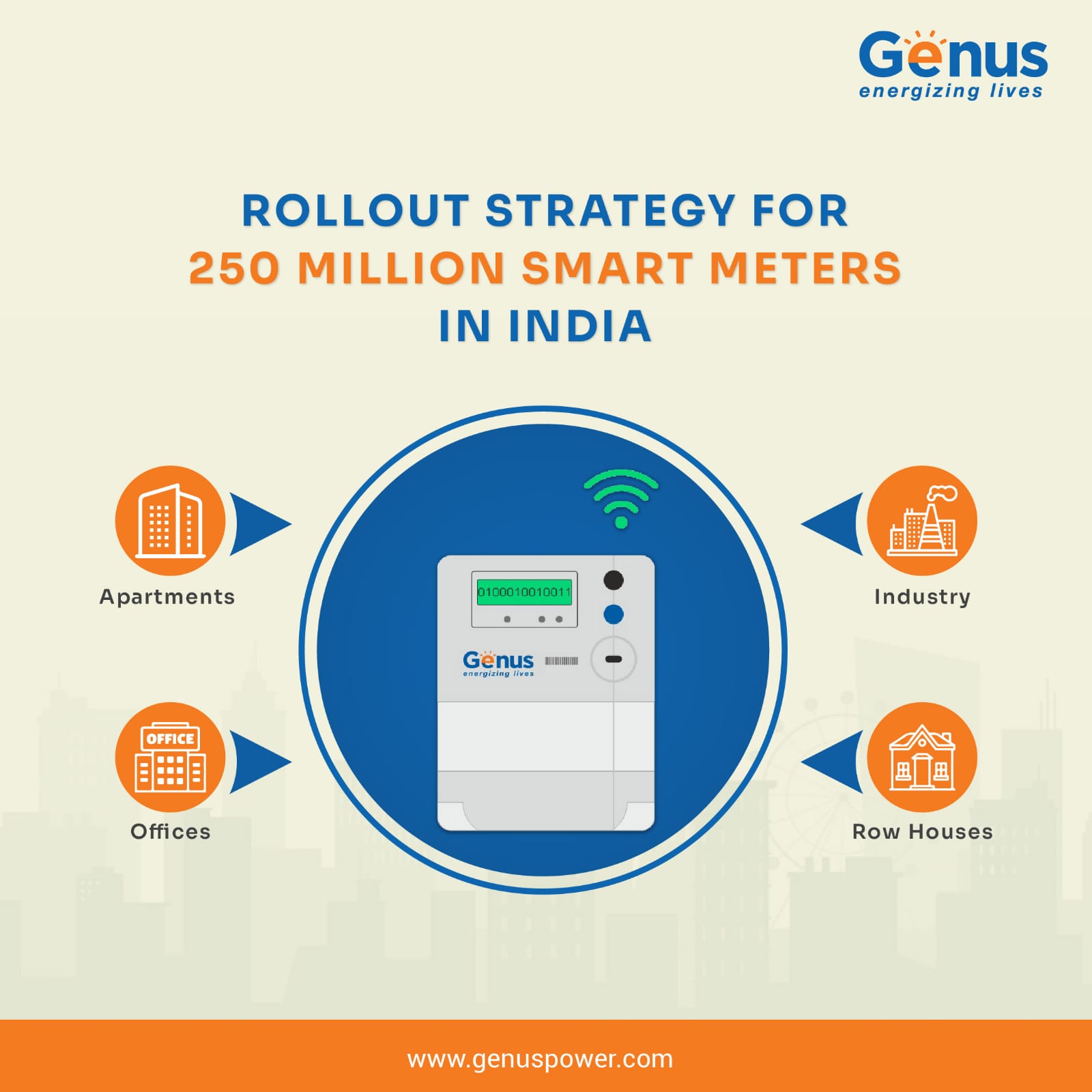
In recent years, the adoption of smart meters in India has been the primary focus for policymakers and DISCOMs, mainly to solve the issue of commercial losses. As a result, private and public entities alike have initiated programs aimed at accelerating the smart meter rollout.
Out of these, the SMNP (Smart metering national project) is the premiere initiative undertaken by the Government of India itself to shift the energy sector’s dependency from traditional to smart electric meters. Its main objective is the rollout of 250 million smart power meters as an intelligent replacement for traditional meters.
In fact, this step in the right direction is projected to save the energy industry about Rs. 11 trillion in commercial losses by 2031-32.
Let’s learn more about the rollout of smart meters in the country.
As of February 2022, approximately 3.9 million smart power meters have been installed throughout India by virtue of multiple government schemes. State-wise, Uttar Pradesh has the biggest slice of the cake with 1,154,358 meters, followed by Bihar with 560,049. Moreover, the installation of 7.34 million smart meters in India< is currently underway.
Here’s a roundup of all the progress various public and private utilities have made under government schemes in regard to smart meter rollout.
As per the SMNP progress in February 2022, around 1.57 million smart power meters have been installed as part of the scheme. As a result, average DISCOM revenues have bumped up by 20.5%, resulting in an increase of Rs. 301 per meter per month.
Based on state-wise statistics mentioned above, UP has the highest share of installed smart electric meters, followed by Haryana, Bihar, Delhi, Andaman & Nicobar Islands, and Rajasthan.
In terms of the impact, the aggregate technical and commercial (AT&C) losses have dropped by 11-36% on an average. As billing is one of the areas smart electric meters help improve upon, the billing efficiency has been improved by a whopping 21%, total revenue was increased by Rs. 2.64 billion per year, thanks to just the 1.1 million newly installed meters.
Witnessing this success, several other states such as Tripura, Assam, Jharkhand, Madhya Pradesh, Punjab, Tamil Nadu, Gujarat, and Karnataka have also jumped on the smart metering bandwagon, and the many benefits it brings like visibility, transparency, efficiency and their application in distribution transformer metering.
Read More: What is Positive Impact of Smart Grids Towards Smart Cities?
Under the Revamped Distribution Sector Scheme (RDSS), the government has released an outlay of Rs 3,000 billion, along with a gross budgetary support of Rs 976 billion over a period of five years from 2021-26. It aims to reduce pan-India AT&C losses by 12-15% and the average supply-average revenue to zero in the next 3 years.
Aimed at consumer empowerment, the scheme puts the reigns back in the hands of consumers by the way rapid installation of smart meters in India>. Also, by virtue of this scheme, the government envisions installation of 250 million smart electric meters for urban transformation, cutting AT&C losses greater than 15 per cent.
The impact of this scheme will be felt in micro, small and medium enterprises, all union territories (UTs), and other industrial and commercial consumers, as well as government offices and other areas plagued with high losses.
By December 2023 itself, the government proposes installation of 100 million prepaid smart electric meters in the first phase, paving the way for efficientsingle phase energy meter connection.
Smart electric meters have the ability to enhance DISCOM’s operational and financial efficiency, while also improving customer satisfaction. Moreover, they also come in handy for implementing demand-side management, time-of-day metering, as well as facilitating peak load management and distributed resource management for renewable energy.
One of the biggest challenges, however, that all processes from billing to monitoring must be automated, still remains. Additionally, other obstacles standing in the pathway of smart-meter roll-out include component shortages and cybersecurity on meter supply, etc. Revamping the entire billing system and personnel training in regards to new technology adoption also pose a hurdle, and will need to be addressed in the near future.
That said, with the rapid innovations in AI and automation, the day is not far away where the utility metering systemwill be completely automated withsmart meters.
Genus Power, an Indian leader in smart metering technology, can aid you in the smart transition, facilitating efficiency, cost-effectiveness, and sustainability on your part. Get in touch with us and learn more about our products today!